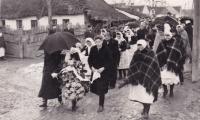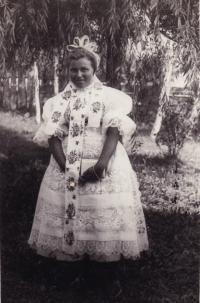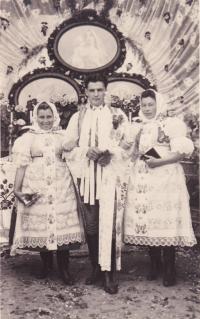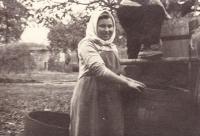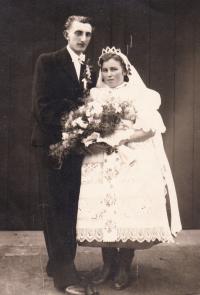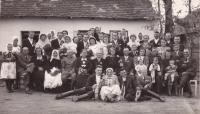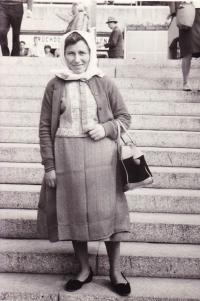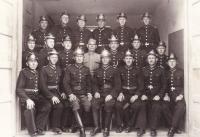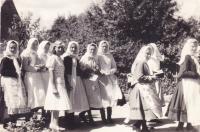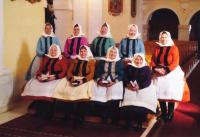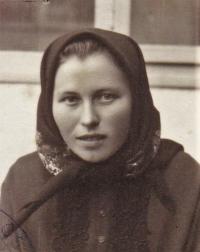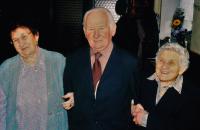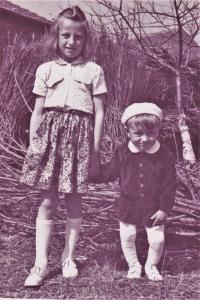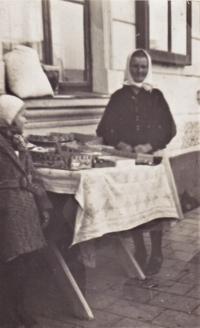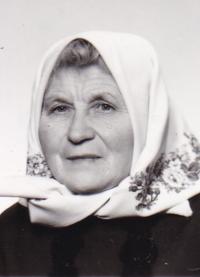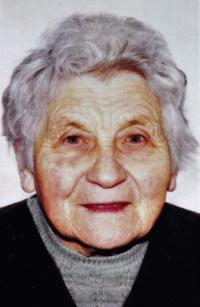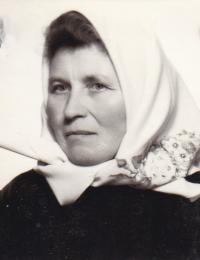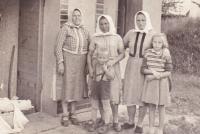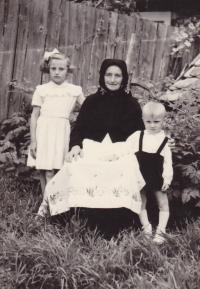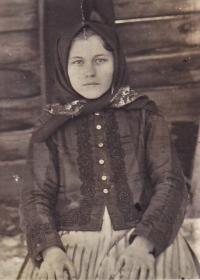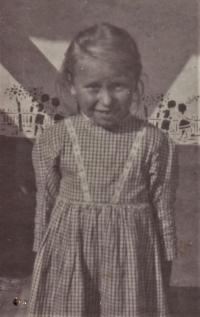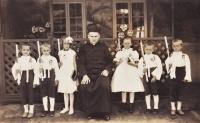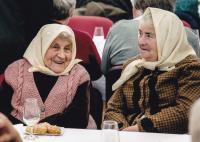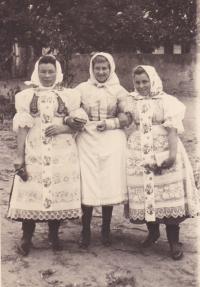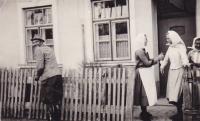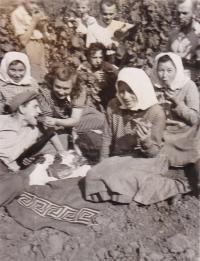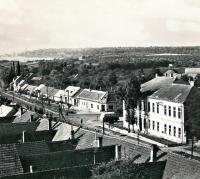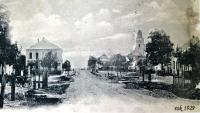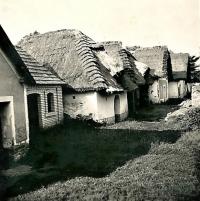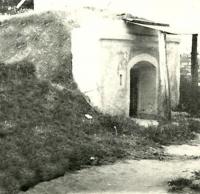“The horses [were taken] by my brother [Štefin] and my [future] husband. He took the cows, he was worried for them, too. So they rode to a field in quarters, and on one quarter there was a copse of trees bunched up, it was kind of sheltered there. And there was one of those, bunkers they called it, built there. So they tied the horses and the cows to the trees by their reins, so they wouldn’t escape. And they’d go there in the morning and come back home in the evening, to and fro. And they [the men] climbed into the ditch there. And the last day, when they came there, they were there as well, and then when the army passed through, it was a big racket and they were afraid to climb out. When things had quietened down a bit, they climbed out of the hole. They climbed out and saw that both the horses and the cart were gone, taken. Eh, the horses came in handy to them [the soldiers], cart and all. The cows stayed there with the other cart but with no reins. The reins had disappeared, too. Then when they returned to Nechory with the cows, from the field there, when they arrived in Nechory, they came down from up the hill. And the cart moved at such a pace that they had to keep braking it, or the cows wouldn’t have kept up. Štefin was all kind of... But my chap, when they came to Nechory with no horses, [people] started asking where the horses were, right, the chaps gathered all around them. Well, but there were plenty of Russians in Nechory as well, and my chap started railing at the Russians that they’d taken [the horses]. That they’d climbed out and that they’d taken the horses, cart and all, even the reins, and that they’d only just made it here the way they were. And the Russians who were swarming about there, they cottoned on to it and started dragging him away. Said he was a German and to shoot him. They were dragging him off to a cellar, saying he was a German, cussing at them like that. But the chaps around him said: ‘He’s no German, leave him be!’ And they had the Russians [off]... then I said: ‘Be quiet and shut your gob!’ [laughing].”

